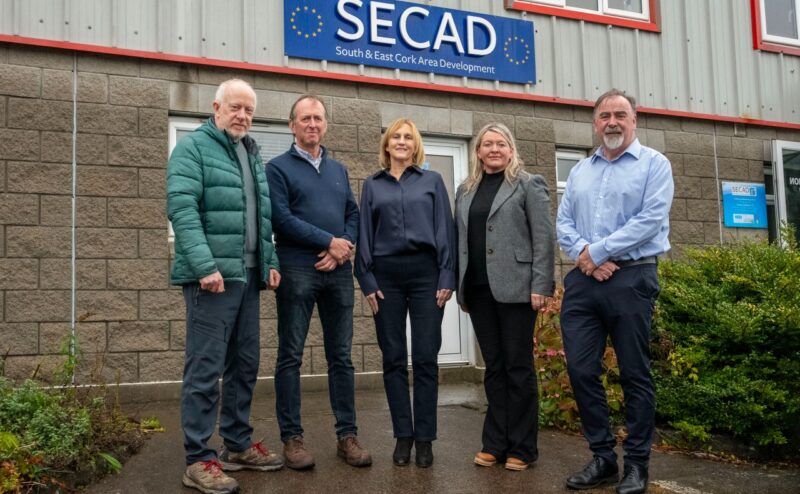
Arable farmers adjacent to important habitats along Ireland’s south coast are being invited to take part in a landmark four-year initiative that aims to restore farmland habitats while delivering practical benefits for farm businesses.
The Arable Coast Environment (ACE) EIP project, coordinated by SECAD Partnership in Cork, forms part of the European Innovation Partnerships (EIP) initiative, co-funded by the European Commission and the Irish Government under the CAP Strategic Plan 2023–2027.
Stretching from Kinsale, Co. Cork, to the Wexford Wildfowl Reserve, the project brings together farmers, landowners, scientists, ecologists, industry experts, and local communities to trial innovative solutions that improve biodiversity in ways that also support farm productivity and value.
In the coming weeks, the ACE EIP team will begin baseline bird and habitat surveys on selected farms across the project area. Farmers and landowners may be contacted to seek permission to access land for this initial research.
These initial surveys are critical to establishing a baseline for ACE EIP, from which a more detailed action plan can be finalised with participating landowners and stakeholders. The research will help identify areas where interventions can have the greatest positive impact — for example, through habitat restoration, improved water and soil management, or targeted support for key farmland bird species.
The early work will focus on birds such as the Yellowhammer, Skylark, Hen Harrier, Kestrel, and Chough, species that have sharply declined in recent decades due to changes in land use.
ACE EIP is designed around farmer participation. South Coast farmers are invited to help develop and trial practical solutions that improve biodiversity while also supporting their farms.
Through collaboration with scientists, ecologists, educators, and industry experts, participating farmers will:
• Trial science-based approaches to habitat restoration, water management, and soil health.
• Enhance the environmental credentials of their farms.
• Explore ways to add value to produce grown under biodiversity-friendly systems.
• Share local knowledge to make solutions practical and effective.
“Farmers are central to this project,” said Paul Moore, tillage farmer in east Cork and ACE EIP Project Ambassador.
“We want to develop measures that restore habitats in ways that make sense for farm businesses. Supporting biodiversity and running a successful farm can go hand in hand,” Mr Moore concluded.
The project seeks to recognise and build upon the practical experience of farmers, ensuring that actions developed through ACE EIP are workable within real farm systems. Farmers involved in the project will have an opportunity to help shape solutions that can be applied more widely across the country, demonstrating that environmental care and productive agriculture can complement one another.
Ryan Howard, CEO of SECAD Partnership, added:
“We have developed the ACE EIP in partnership with key stakeholders in farming, ecology, industry, state services, education, and local development, as we know partnership and collaboration will be central to addressing this challenge.”
While the project is still in the design stage, these early surveys will inform a detailed, evidence-based approach to farm-level habitat restoration, ensuring that actions taken in future years are targeted, measurable, and effective.
The south coast of Ireland is home to a rich agricultural landscape interwoven with areas of high ecological importance. From coastal grasslands to tillage fields and mixed farmland, these areas play a vital role in supporting both food production and biodiversity.
By focusing on this stretch of coastline, the ACE project hopes to showcase how local action can drive national change — developing insights and methods that can inform future agri-environmental policy and practice.
Farmers and landowners interested in participating in the ACE EIP project can contact SECAD Partnership at: [email protected] or 021 461 4332